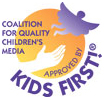

![]()
![]()
The Manchester Union Leader
April 26, 2004
Children's innocence lasts longer in Kenya
than in America
By JUDY PANCOAST
Guest Commentary
THERE IS A miracle happening in Kenya. Just
outside of Nairobi, in an orphanage known as Nyumbani (“home”),
some 92 HIV-positive children are living, growing, playing and feeling
good about themselves and where they live.
Every child was literally rescued from a life of abandonment in the
slums of Nairobi, and none was expected to live much longer than a few
months. Now, with excellent medical care and a loving and nurturing
environment, their life expectancies are increasing, and the death rate
at Nyumbani has decreased from two or three children per month to just
a few each year.
I recently had the privilege of being invited to Nyumbani to spend a
week with the children, writing songs and making music together. In
my career as a children’s musician in the United States, I have
had countless positive experiences, but none to compare with what I
learned spending time with these children.
The songs they wrote are powerful representations of their lives and
their feelings, and when heard, I hope, will go a long way to breaking
the stigma of HIV-positive children and adults all over the world.
Of course, it is hard to spend a week with Nyumbani’s children
and not fall in love with them. During one of my last evenings there,
I sat on the stoop of one of the cottages that house the children (10
or more children per cottage, with a house “mum” or “uncle”)
and held an 11-year-old girl in my arms. She said that someday, when
she grows up, she wants to be a singer like me. I told her I would send
her music to sing along with and I would write to her and keep up with
her progress. Then she asked the inevitable, would I take her to the
United States?
Even I was shocked at my answer. “No, dear, I will miss you with
all my heart, but I believe you are better off growing up here.”
Better off in an orphanage in Kenya? How can that be? Granted, they
do not have fashionable clothes (they’re wearing your old cast-offs)
they lack money or malls and they certainly don’t have Nintendo,
but they have everything they need. They are so loved and well cared
for by the staff and volunteers at Nyumbani, they are in a hermetically
sealed environment of constant love and support; sheltered from the
outside world of harsh criticism, prejudice, breast-baring pop singers
and violent and sexual music, television and movies. In a word, they
are innocent. And they are beautiful, and all I could see was that beauty
and innocence being spoiled by life in the good ol’ U.S.A.
Here in the United States our children are daily exposed to a barrage
of cultural influences that are slowly but surely stripping away that
sense of childhood innocence. When their entertainment choices go immediately
from Barney to Britney, when “The Cat in The Hat” is adapted
into an obscene feature film, when 6-year-old girls are wearing belly
shirts and imitating MTV, I have to say stop! In my search for suitable
music to send back to that child, I had to go all the way back to Aretha
Franklin’s “Greatest Hits” before I found a CD by
a female pop singer that didn’t feature questionable lyrics or
cover art.
So while I would love to bring every child home with me and love them
to pieces, I believe in my heart that their childhood is better protected
right where they are than in the land of the free, where our cultural
freedom seems to mean the end of freedom for children to be children.
Judy Pancoast lives in Goffstown and composes
and performs songs for pre-teen children.
![]()

This site is protected by copyright laws under US and International law. All rights reserved. © 2005 Judy Pancoast LLC
This web site was designed by West Web Pages & West Multimedia Productions